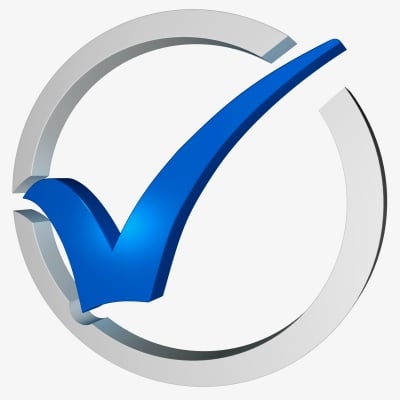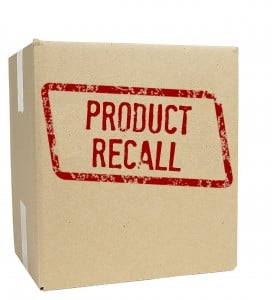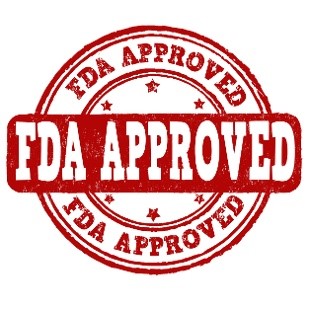Food ERP: Product Recall Planning Best Practices: Part II
Food ERP: How to Manage the Best Case Scenario In the first article of this series, “Food ERP: 3 Product Recall Planning Best Practices: Part I,” we...


If you are in the food and beverage industry, you know there is nothing more terrifying than facing and dealing with the dreaded event of a PRODUCT RECALL. As a responsible company in the food industry, a significant amount of time and money is spent planning, preparing, and preventing a product recall event from occurring. Unfortunately, all the planning and safeguards can’t guarantee that you will never hear those hated words…PRODUCT RECALL. If you are fortunate enough to have not experienced a product recall so far, be prepared…it’s only a matter of time. Whether it’s a defective product, contamination or human error, product recalls are a fact of life in business and bound to happen eventually.
Often a company’s ability to recover its brand reputation from a product recall is measured in how you handled the recall. After all, it’s the product and company reputation on the line. A product recall situation is no time to stick your head in the sand until the FDA kicks down the door. The more proactive you can be, the more effectively you will be able to recover your company’s good name and secure its financial future.
The key is to attack it head-on and be prepared. If you treat it as an opportunity to show the strength of your company and products, your customers will reward you with loyalty and positive (and free) publicity.
So you haven’t had a recall to date…congratulations! If your company is operating just as expected and you plan on continuing that way, it’s easy to start believing that “It won’t happen to me!” However, if a product recall happens tomorrow, next week or next month, does your company have a plan in place to quickly and efficiently deal with a recall from top to bottom?
Here are some key questions you should have answers to:
1. How fast can you identify that a recall is required?
2. Which products are affected and where are they located?
3. What steps will you follow to recall the affected products?
4. Are the roles and responsibilities within your company clearly defined?
5. How will you inform your customers?
6. How will you inform your employees?
If your answer is “I’m not sure”, get help or face the wrath of your customers and shareholders. In a lot of ways our businesses grow and evolve in the same way we do, by experience and going through the ups and downs of our industry. Yet, a product recall is a perilous place to learn a hard lesson that may be irreversible.
Customers are like elephants and like elephants, customers have long memories. They also have the social media tools on hand to spread the word quickly, so the lasting effects of a recall can be devastating or elevating.
Customers will remember not only the product recall, but also how your company handled that situation and how it personally affected them. All shared across the social media stratosphere! Did you communicate well? Did you remedy the matter? Were you prompt in taking action? Or did you hide until the regulators forced your hand? Through blogs, twitter, and other social media platforms, your collective customer will remember for a long time.
Say you survived your first product recall. What changes need to occur to make sure your brand is built to last? Product was pulled, replacement products shipped and refunds given as needed. Have you survived well enough to carry on “business as usual?” Or have you permanently tarnished your brand to the point that your customers have started to jump ship? Another big question… can you repeat the process in case there is another product recall?
In Part II of this Food ERP Product Recall series, we’ll show you how a product recall can go well, every time, by building a plan and following it to emerge stronger in the future.
If you have questions about how an improved food ERP system can help you avoid and manage the event of a product recall, our industry experts are available to help.
Please feel free to contact the NexTec Group at 206-505-7980, by EMAIL or visit our website at www.nextecgroup.com. We would be happy to discuss all your options in more detail.
At NexTec Group, we’ve been implementing ERP solutions and supporting businesses for more than 20 years. Our clients are primarily SMBs (small-to-midsized businesses) in industries such as food & beverage, manufacturing (process manufacturing), distribution, pharmaceuticals, chemical, energy (oil and gas), and related industries.
Another version of this blog was posted on NexTec’s Blog: Product Recall Gone Bad - Part I by Colin Hanes

Food ERP: How to Manage the Best Case Scenario In the first article of this series, “Food ERP: 3 Product Recall Planning Best Practices: Part I,” we...

Food ERP: Lesson Learned on Product Recalls With the latest recall alerts from Blue Bell Creameries and Sabra’s hummus for listeria contamination,...

1 min read
How Sage X3 FDA Compliance Functionality Meets the High Demands of Food and Beverage Industry In the face of increasingly strict FDA compliance, food...